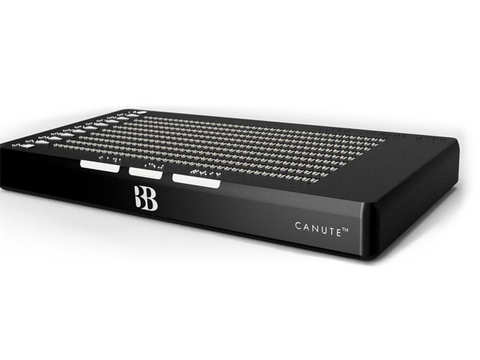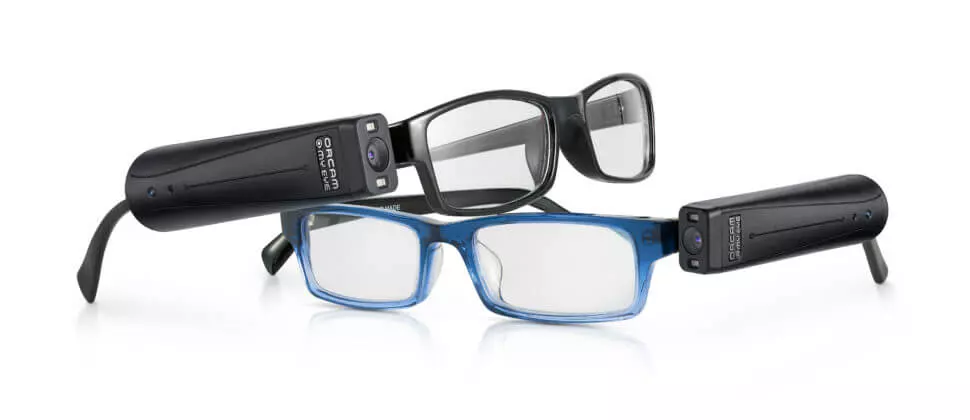Explore Smart Glasses for the Visually Impaired and Their Benefits
Explore Smart Glasses for the Visually Impaired and Their Benefits
Blog Article
Empowering Freedom With Assistive Innovation for the Blind
The integration of assistive technology right into the lives of people with aesthetic problems represents a considerable innovation in promoting self-reliance and self-sufficiency. From innovative display readers to innovative clever walking sticks, these tools not just improve everyday navigating and communication but additionally empower individuals to involve meaningfully in numerous aspects of life. As we discover the myriad advantages and real-world applications of these innovations, it becomes critical to analyze the hidden aspects that add to their performance and the capacity for future advancements in this crucial field.
Overview of Assistive Modern Technology

The advancement of assistive technology is grounded in principles of inclusivity and empowerment. Innovations in software program, hardware, and sensory enhancements offer users with options customized to their specific requirements. From display visitors that convert text to speech, to tactile devices that communicate details through touch, these devices change the way individuals involve with their surroundings.
Along with functional applications, assistive modern technology promotes higher social addition and engagement in various sectors, including education and work (Smart glasses for the visually impaired). As r & d continue to develop, the possibility for assistive modern technology to additionally boost the lives of visually damaged people remains promising, paving the way for a more equitable culture where everybody can grow
Types of Assistive Devices
A selection of assistive devices have actually arised to support people with visual problems, each made to satisfy details demands and boost everyday functioning. These tools vary from low-tech services to state-of-the-art innovations, offering diverse options for users.
Low-tech tools consist of magnifiers and large-print materials that assist in analysis and writing. Braille devices, such as Braille slates and stylus pens, make it possible for tactile analysis and interaction. Alignment and mobility help, like white walking sticks, assist individuals navigate their atmosphere safely.
On the greater end of the spectrum, digital zoom systems and display visitors supply substantial assistance. Digital magnifiers allow individuals to increase the size of message and photos on displays, while display readers convert digital material right into manufactured speech, helping with accessibility to information on computers and mobile phones.
Smart device applications additionally play a vital function, providing features like text acknowledgment and navigation aid. Wearable technology, such as clever glasses equipped with enhanced reality, is arising as an appealing tool to improve situational awareness.
Advantages of Assistive Technology
The combination of assistive innovation dramatically improves the top quality of life for individuals with aesthetic disabilities. These innovations encourage customers by pop over to this web-site advertising independence, enabling them to navigate their environments extra effectively and carry out day-to-day tasks with better simplicity. As an example, display visitors and zoom software enable individuals to gain access to digital info, promoting instructional and expert possibilities that might have formerly been out of reach.
Furthermore, assistive tools such as smart walking sticks and general practitioners applications provide real-time navigating assistance, boosting mobility and security. This increased freedom not just improves self-confidence yet also encourages social involvement, permitting individuals to get involved even more totally in their neighborhoods.
Assistive modern technology likewise facilitates interaction, assisting customers get in touch with others through voice acknowledgment and text-to-speech applications. This capacity is crucial for preserving relationships and accessing crucial info.
Furthermore, the personalization options available with numerous assistive technologies ensure that individuals can tailor devices to their particular needs, check that additionally boosting use and effectiveness. In general, the benefits of assistive technology for people with visual problems are extensive, promoting an extra inclusive society where everybody can pursue their goals and goals.
Case Research Studies and Success Stories
Highlighting the transformative impact of assistive technology, various study show just how people with visual disabilities have actually efficiently incorporated these devices into their everyday lives. One compelling example involves a college trainee that made use of screen analysis software to navigate scholastic products and on-line resources successfully. This modern technology not only promoted her education yet likewise enhanced her confidence in joining discussions and team projects.
One more case research includes an expert that uses a mobile phone application developed for navigation and item acknowledgment. By utilizing this app, he has actually gained back autonomy in both his individual and workplace, enabling him to commute separately and involve with colleagues better.
In addition, a senior citizen shared her experience with braille e-readers, which enabled her to access a large selection of literary works and stay gotten in touch with her community through publication clubs.
These success tales highlight the essential function of assistive modern technology in promoting freedom, boosting lifestyle, and advertising social assimilation for people with visual disabilities (Speech-to-text devices for low vision). By accepting these ingenious tools, customers can get rid of challenges and take opportunities that add to their expert and personal satisfaction

Future Trends in Assistive Innovation
Development in assistive modern technology is poised to redefine the landscape of assistance for individuals with visual disabilities. Emerging fads stress the integration of synthetic knowledge (AI) and artificial intelligence, which boost the capability of tools that assist with navigation and info access. As an example, AI-driven applications are now with the ability of translating visual information in real-time, enabling users to involve with their environment much more individually.
Furthermore, the development of wearable innovation is progressing rapidly. Smart why not try here glasses equipped with increased reality (AR) can give audio summaries of environments, changing how individuals interact with public spaces. These tools not just promote autonomy yet also foster social incorporation.
In Addition, the Internet of Points (IoT) is making homes smarter, permitting seamless connectivity in between day-to-day home appliances and assistive tools. This connection empowers users by allowing voice-activated controls and computerized feedbacks customized to private demands.
Verdict
To conclude, assistive innovation plays a crucial duty in encouraging people with aesthetic impairments by improving their independence and interaction with their environments. The diverse variety of applications and tools offered not just promotes navigating and interaction however additionally advertises social combination and chances for individual and professional growth. As advancements continue in this area, the possibility for improving the lifestyle for those with aesthetic problems will certainly expand, promoting better freedom and empowerment.

Report this page